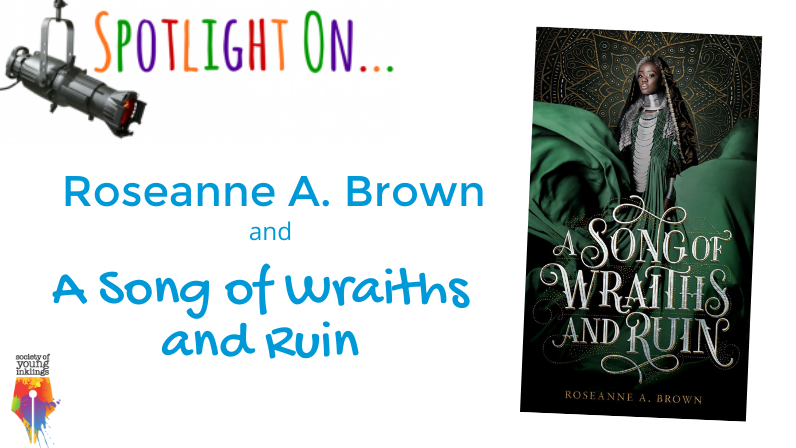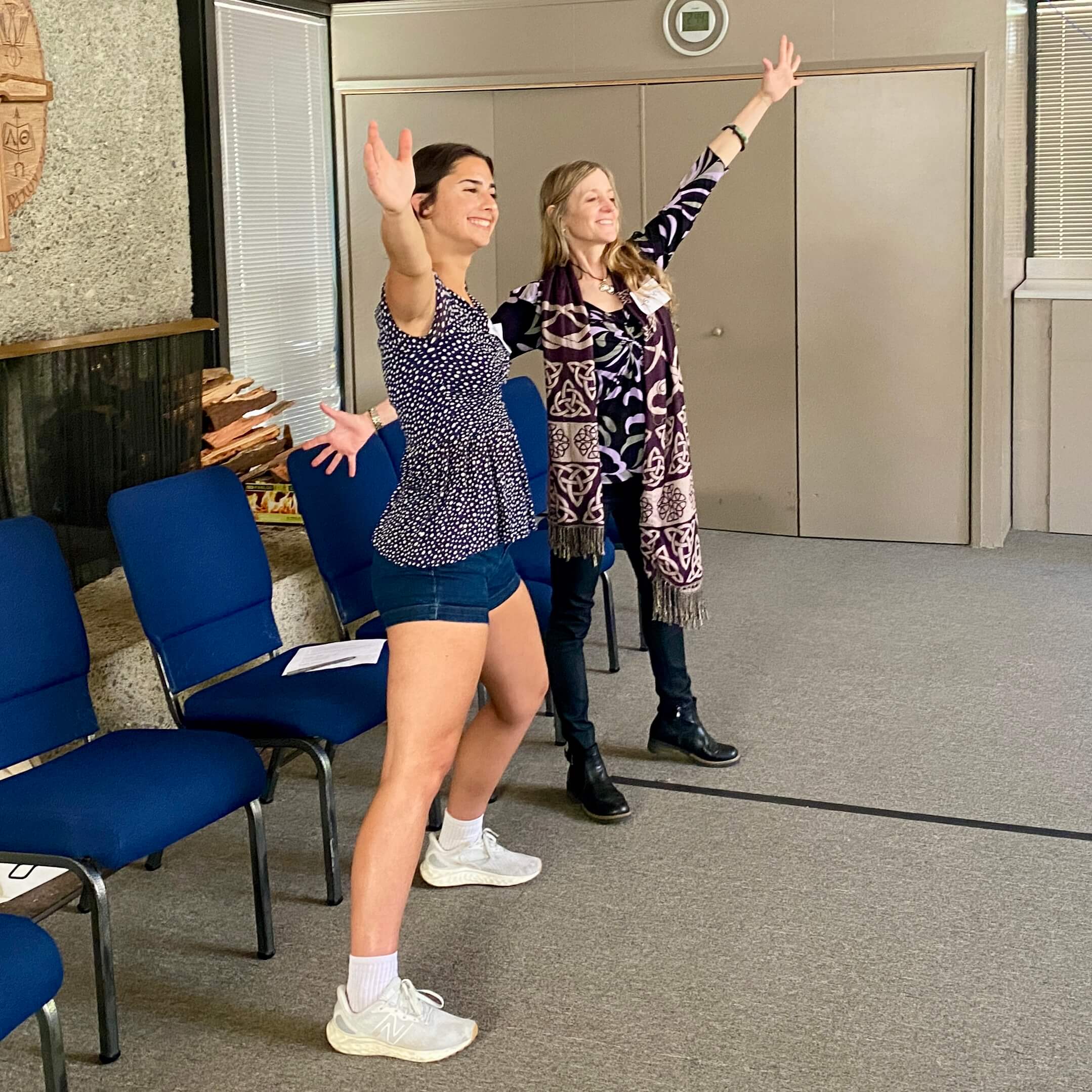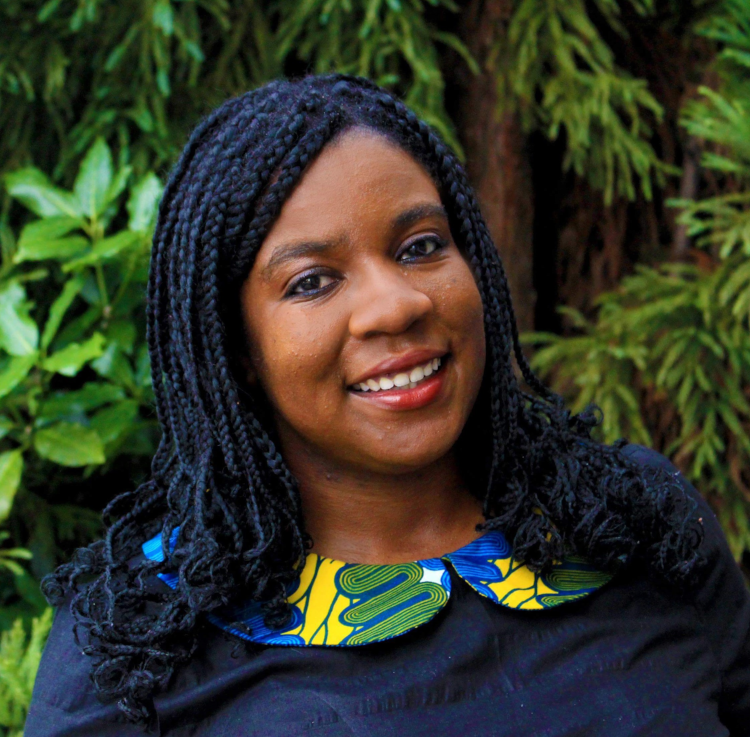For our December issue, we talk with author Roseanne A. Brown about her recent book, A Song of Wraiths and Ruin. In this interview, we discover how her family’s culture and rich tradition in oral storytelling influences her writing.

Writing Challenge
Characters are the focus in this edition’s writing challenge! Roseanne reminds us that rather than just describing the biographical details of a character, it is important to show how they act in various situations. She says, “Putting different characters in various moral and ethical dilemmas helps me really break down what makes them tick and why, which I then transfer into my work.”
This month, your writing challenge will be all about characters! In her interview, Roseanne shares one way she gets to know her characters: by putting them through a morality test. Let’s try the same for one of our characters! Imagine that your character comes across a lost $20 bill (or whatever the equivalent currency is in the world of your story). Picture where they’ve found it, and why it might be particularly tempting today for your character to slip that money in their pocket. Write a scene to explore what they might do next. What do you learn about your character through their thought process and ultimate decision?

An Interview with Roseanne A. Brown
What inspired you to write A Song of Wraiths and Ruin?
I’ve loved fantasy for as long as I could remember, but I had never read any that featured people who resembled me and my loved ones. ASOWAR was inspired by my desire to create a fantasy world that held Black folks and the African cultures I had grown up with front and center. Also, as someone who has dealt with anxiety for most of my life, I wanted to see a Black character who reflected this struggle but still got to be the hero of their story.
How did you use West African folklore as you created the world of your story and developed your novel?
My family is from Ghana, and our culture has a strong tradition of oral storytelling, so it was always important to me that ASOWAR feel like a story that was being told to the reader. Another place where the culture and folklore came in was in the magic system. Among the Akan people of Ghana, the day of the week on which a person is born has great significance. It can even decide one of their names. So I expanded this to make it that the day of the week on which a person is born decides their magic. This is how I was able to pay homage to our tradition but make it my own.
How do you get to know your characters? Do you use any specific strategies?
I put my characters through what I call morality exercises, because it’s less important I know biographical details about them like their height or hair color than it is to know how they act in various scenarios. One of my favorite examples is the lost wallet test. Your character is late for class when they find a lost wallet on the ground. What do they do? Are they the kind of person who would leave the wallet, or take it and keep it, or take it and try to find the owner after class or do something else entirely? Putting different characters in various moral and ethical dilemmas helps me really break down what makes them tick and why, which I then transfer into my work.
What’s one solution you use when writing gets tough?
Whenever writing gets super tough, I always go back and read the books that had the biggest impact on me. This helps me remember why I wanted to write in the first place, to create books that helped me feel less lonely in the world. No matter what, it’s so important to never lose that kernel of why you wanted to do this in the first place.
What would you tell your younger writing self?
I’d tell her this week’s lottery numbers! But in all seriousness, I’d tell her that her gut instincts to treat her writing as a priority and as seriously as others treat things like sports or clubs was right. And that so many amazing, wonderful things she can’t even fathom are coming her way, as long as she keeps putting a pen to paper and never gives up.

INKLINGS CONNECT
THE WAY WORDS MOVE US
Join us September 13 and 14 in Portola Valley, CA for our 2nd Annual Inklings Conference!
Featuring a keynote with author Joanna Ho, this conference includes creative writing breakout sessions in our beautiful redwood grove, workshops on using improv to step into a character’s shoes, experiments in word play, a storytelling workshop, and reflective writing to tap into your unique voice.

A special thanks to Roseanne A. Brown for sharing with us! You can find more of her books at https://roseanneabrown.com
Roseanne “Rosie” A. Brown was born in Kumasi, Ghana and immigrated to the wild jungles of central Maryland as a child. Writing was her first love, and she knew from a young age that she wanted to use the power of writing—creative and otherwise—to connect the different cultures she called home. She graduated from the University of Maryland with a Bachelor’s in Journalism and was also a teaching assistant for the school’s Jiménez-Porter Writers’ House program. Her journalistic work has been featured by Voice of America among other outlets.

